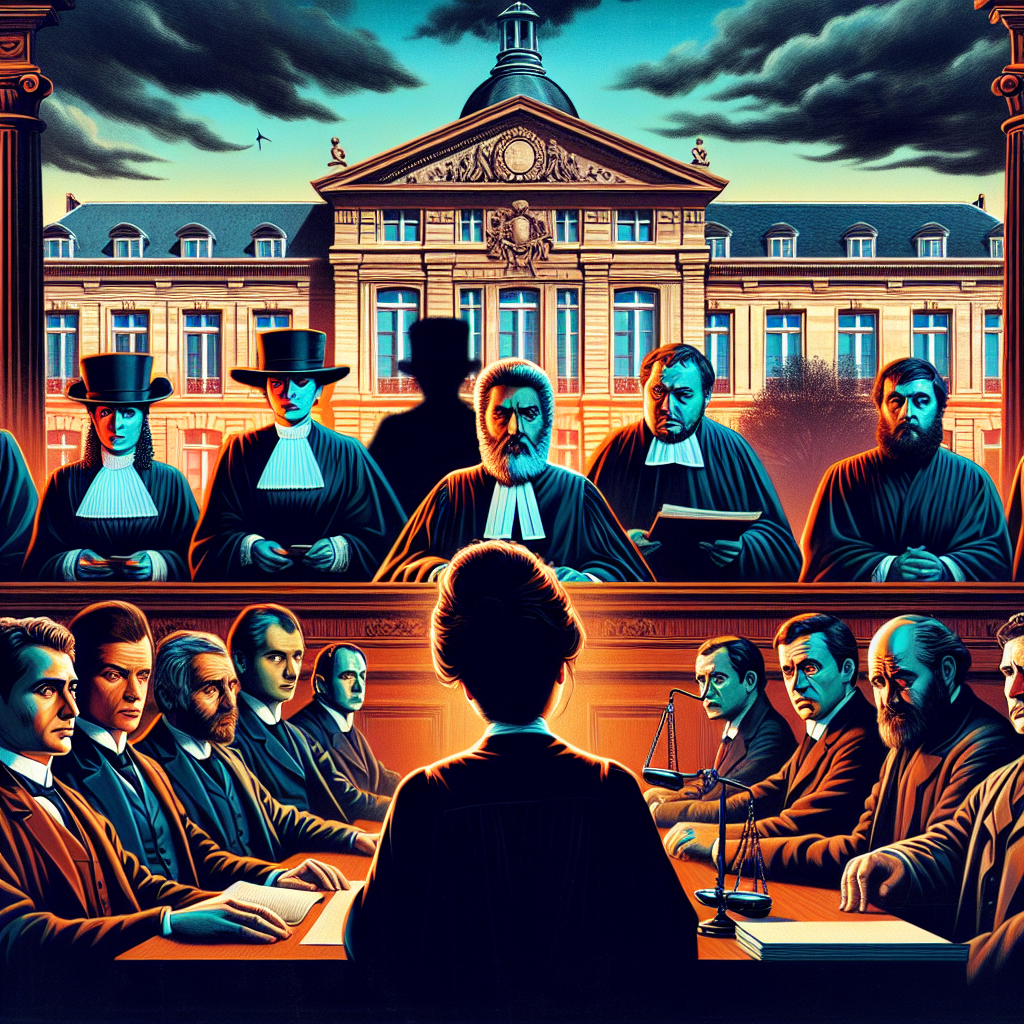Eight Convicted in Samuel Paty Murder Case: A Testament to Justice Amidst Painful Lessons
A Paris court made a significant ruling on Friday, convicting eight individuals for their involvement in the tragic murder of Samuel Paty, a history teacher brutally killed in 2020 by an Islamist terrorist. This verdict not only addresses a heinous act that sent shockwaves across France but also evokes deeper questions about accountability, free speech, and the responsibility of community members in upholding one another’s dignity.
Samuel Paty’s death was a turning point in France’s struggle with terrorism and the defense of secular values. On that fateful day in October 2020, Paty was targeted for showing caricatures of the Prophet Muhammad during a civics lesson intended to illustrate the importance of free speech. His killing by 18-year-old Abdoullakh Anzorov, who was spurred to violence by the outrage surrounding the lesson, revealed cracks in the social fabric that binds communities together. Anzorov was shot dead by police shortly after the attack, immortalizing Paty’s story as one of profound loss and injustice.
The court’s decision has sent a clear message. Presiding Judge Franck Zientara emphasized that Paty’s murder constituted "an irreparable attack on the Republic’s fundamental values." The sentences imposed ranged from 1 to 16 years, reflecting not only the specifics of each individual’s involvement but also an acknowledgment of the collective responsibility we share in promoting peace and understanding.
In a world where misinformation can incite violence, the court detailed how two of the defendants had aided the killer by facilitating the procurement of weapons, while others contributed to a damaging online campaign against Paty. Testimonies revealed that the spark for this tragic event ignited from false claims made by a student—an incident layered with profound implications about truth, accountability, and community dynamics. Reflecting on this situation, it echoes the biblical wisdom found in Proverbs 18:21: "The tongue has the power of life and death." In a landscape rife with discord, words can either uplift or destroy, highlighting our moral responsibility to speak truthfully.
Adding complexity to this case were the perceptions of the community surrounding the events. Accusations against Paty, fueled by misleading narratives, crystallized into a "campaign of hatred" that ultimately precipitated the violence. We are reminded of the importance of careful discernment and the dire consequences that can arise from unchecked anger and misunderstanding—a truth echoed in the teachings of Jesus, who called us to love our neighbors as ourselves and to seek reconciliation (Mark 12:31).
The reactions in the courtroom were mixed, resonating with a broader societal struggle to reconcile justice and healing. Some celebrated the convictions as a long-awaited acknowledgement of Paty’s dignity and the values he represented; others mourned the loss of their loved ones, reflecting the multifaceted nature of justice and accountability. As individuals grapple with these emotions, they are invited to contemplate the greater narrative of compassion, healing, and reconciliation that lies at the heart of the Christian faith.
In the wake of this verdict, it is imperative to acknowledge not just the outcomes, but the broader lessons we can draw about our personal and communal responsibilities. Each of us plays a role in fostering understanding, safeguarding the truth, and promoting a culture that respects the dignity of all individuals, regardless of their beliefs.
Let this moment serve as a reflection on the importance of cultivating empathy and proactively addressing misunderstandings before they escalate. As we navigate through life and its complexities, may we strive to embody the principles of love and compassion—words that truly have the power of life and death.
In the silence that follows the verdict, let us invite ourselves into a deeper reflection: How can we each contribute to a world that embraces truth and understanding, fostering relationships that honor the dignity of every individual created in the image of God? The path towards healing begins with us.
Explore and dig up answers yourself with our BGodInspired Bible Tools! Be careful – each interaction is like a new treasure hunt… you can get lost for hours 🙂


